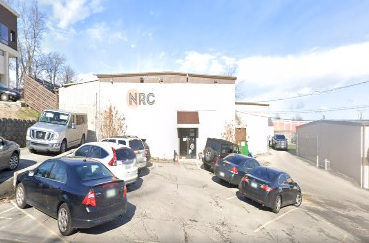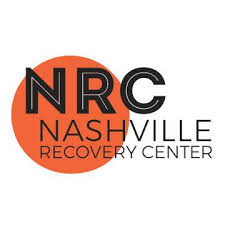Overview
Nashville Recovery Center, which was previously situated in Nashville, Tennessee, was a substance addiction treatment facility that provided outpatient services to individuals aged 18 and older. Despite its permanent closure, the center was instrumental in assisting individuals during the various phases of recovery by offering customized programs that were designed to address both substance abuse and co-occurring mental health issues.
A Partial Hospitalization Program (PHP) and an Intensive Outpatient Program (IOP) were among the programs offered by the center. These programs were developed to provide flexibility to individuals who required structured care but preferred to maintain certain aspects of their daily lives, such as work or family obligations. The Intensive Outpatient Program offered more frequent yet less time-intensive sessions, providing the requisite support for individuals transitioning out of more intensive treatment, while the Partial Hospitalization Program offered comprehensive, day-long treatment with medical oversight.
In order to address the emotional, psychological, and behavioral requirements of its clients, Nashville Recovery Center implemented an assortment of therapeutic methodologies. Cognitive Behavioral Therapy (CBT) and Dialectical Behavior Therapy (DBT) were the core therapies. These approaches are evidence-based and assist individuals in comprehending and altering detrimental thought patterns and behaviors that are linked to addiction. Furthermore, the center offered family counseling, group counseling, and 12-step facilitation, thereby establishing a supportive environment for recovery and promoting personal and community responsibility. The center also provided holistic therapies, which were designed to address the individual's physical, emotional, and spiritual requirements in a comprehensive manner.
Nashville Recovery Center, which is no longer operational, was renowned for its comprehensive approach to outpatient substance addiction treatment. It provided a blend of clinical therapies and holistic care to assist individuals in their recovery. The center equipped individuals with the resources required to achieve enduring sobriety and personal development through initiatives such as PHP and IOP.
Nashville Recovery Center at a Glance
Payment Options
- Cash or self-payment
- Private insurance
- Medicaid
- Medicare
- Sliding fee scale (fee is based on income and other factors)
Assessments
- Comprehensive substance use assessment
Age Groups
- Adults
Ancillary Services
- Assisted Outpatient Treatment
- Family psychoeducation
- Psychosocial rehabilitation services
Treatment At Nashville Recovery Center

Conditions Treated
Alcoholism:
Alcohol addiction is when a person becomes physically and mentally dependent on alcohol, leading to mood swings, impulsive actions, intense cravings, and withdrawal symptoms. Treatment includes supervised detox, therapy, and support groups. It's important to note that rehabilitation doesn't "cure" alcoholism, but it helps individuals better manage their addiction, regain their ability to function in daily life, and improve their overall well-being.
Substance use treatment:
Substance use rehabilitation is a structured program aimed at assisting individuals in overcoming their dependencies on drugs or alcohol. Through a combination of medical detoxification, counseling, and various therapeutic approaches, these programs strive to address the physical and psychological aspects of addiction. The goal is to equip individuals with the knowledge, skills, and support necessary to attain lasting sobriety, while also working to identify and address the underlying issues contributing to substance misuse. By fostering a supportive environment, substance use rehabilitation centers provide a pathway towards a healthier, substance-free life.
Co-occurring Disorders:
Dual-diagnosis rehabilitation centers specialize in the treatment of individuals who suffer from a co-occurring mental health disorder and a substance use disorder. This complex interplay between addiction and mental health can make recovery more challenging, as each condition may exacerbate the symptoms of the other. Dual-diagnosis rehabilitation centers offer an integrated approach that addresses both issues simultaneously and often includes a comprehensive assessment for an Integrated Treatment Approach through Holistic Therapies, including family therapy and aftercare treatment.

Levels Of Care
Luxury Treatment:
Luxury rehab centers offer upscale treatment environments for individuals seeking recovery from addiction or other behavioral disorders. These centers combine top-tier medical and therapeutic care with lavish amenities, ensuring patients receive the utmost comfort and personalized attention. Often set in picturesque locations, these centers prioritize privacy, holistic well-being, and world-class facilities to facilitate a rejuvenating healing experience.
Intensive outpatient treatment:
IOP, or Intensive Outpatient, is a structured level of care for addiction, mental health, or other conditions. Unlike inpatient care, it allows individuals live at home and maintain daily responsibilities. They attend multiple weekly sessions totaling 9-20 hours, including individual and group therapy, family counseling, and skill-building classes for symptom management and relapse prevention.
Partial Hospitalization Program:
A Partial Hospitalization Program (PHP) is an intensive, structured rehabilitation service designed for individuals exhibiting acute symptoms that demand significant intervention but not continuous 24-hour care. Typically spanning 3-5 days a week and lasting from 1 to 6 months, these sessions run for approximately 6 hours a day, focusing on activities like individual and group therapy. Some PHPs provide residential accommodations for overnight stays, while others are non-residential, allowing participants to go home at the end of the day.
Outpatient:
Outpatient programs are designed for individuals in stable medical condition with a low risk of relapse, often those who've completed inpatient treatment. These programs extend the foundation of prior treatment approaches, offering continuous addiction guidance and resources for sustained recovery. For those transitioning straight from detox, medical and psychological assessments are typically conducted, leading to the development of individualized treatment strategies. The majority of outpatient rehab centers provide diverse care levels, customized to each client's unique requirements.
Aftercare:
Aftercare is the continued support and care that individuals receive following the completion of their primary treatment program for substance abuse or addiction. This phase aims to aid individuals in maintaining their sobriety, improving personal skills and coping strategies, and integrating back into society. Aftercare can include ongoing therapy, support group meetings, education, and monitoring, which are crucial for preventing relapse and promoting long-term recovery. Through a combination of community support, accountability, and personal development, aftercare provides a structured pathway for individuals to continue their recovery journey in a supportive environment.

Treatment Modalities
Family counseling:
Family counseling is a therapeutic approach that addresses the dynamics, interactions, and challenges within a family unit. Through guided discussions and interventions, a trained counselor helps family members understand one another, resolve conflicts, improve communication, and strengthen their bonds. This form of therapy can be beneficial for families facing transitions, stressors, or behavioral issues, promoting understanding and facilitating positive change in the familial environment.
Group counseling:
Group therapy entails therapeutic sessions conducted in a collective setting rather than one-on-one. It encompasses various modalities, from support groups and experiential therapy to psycho-education and beyond. The approach focuses on treatment and emphasizes the dynamic interactions and shared experiences among group members.
12-step facilitation:
12-Step Facilitation is a structured approach to recovery used in many rehab facilities. It's rooted in the principles and practices of Alcoholics Anonymous (AA) and its 12-step program. The facilitation process promotes abstinence and supports individuals in becoming actively involved in 12-step self-help groups. The approach emphasizes personal responsibility, spiritual growth, and the importance of peer support to maintain sobriety and prevent relapse. By guiding individuals through each step, 12-step Facilitation aids participants in understanding the underlying causes of their addiction, seeking amends, and fostering a commitment to lifelong recovery.
Holistic Treatment:
Holistic Treatment refers to an integrated approach to recovery that addresses the physical aspects of addiction and the individual's emotional, mental, and spiritual needs. This method incorporates a variety of therapies, practices, and activities, such as nutrition, mindfulness, yoga, and counseling, to promote overall well-being, self-awareness, and balance. By treating the whole person, holistic treatment aims to ensure a more comprehensive and sustainable recovery.
Contact Information
DISCLAIMER: The facility name, logo and brand are the property and registered trademarks of Nashville Recovery Center, and are being used for identification and informational purposes only. Use of these names, logos and brands shall not imply endorsement. BetterAddictionCare.com is not affiliated with or sponsored by Nashville Recovery Center.




